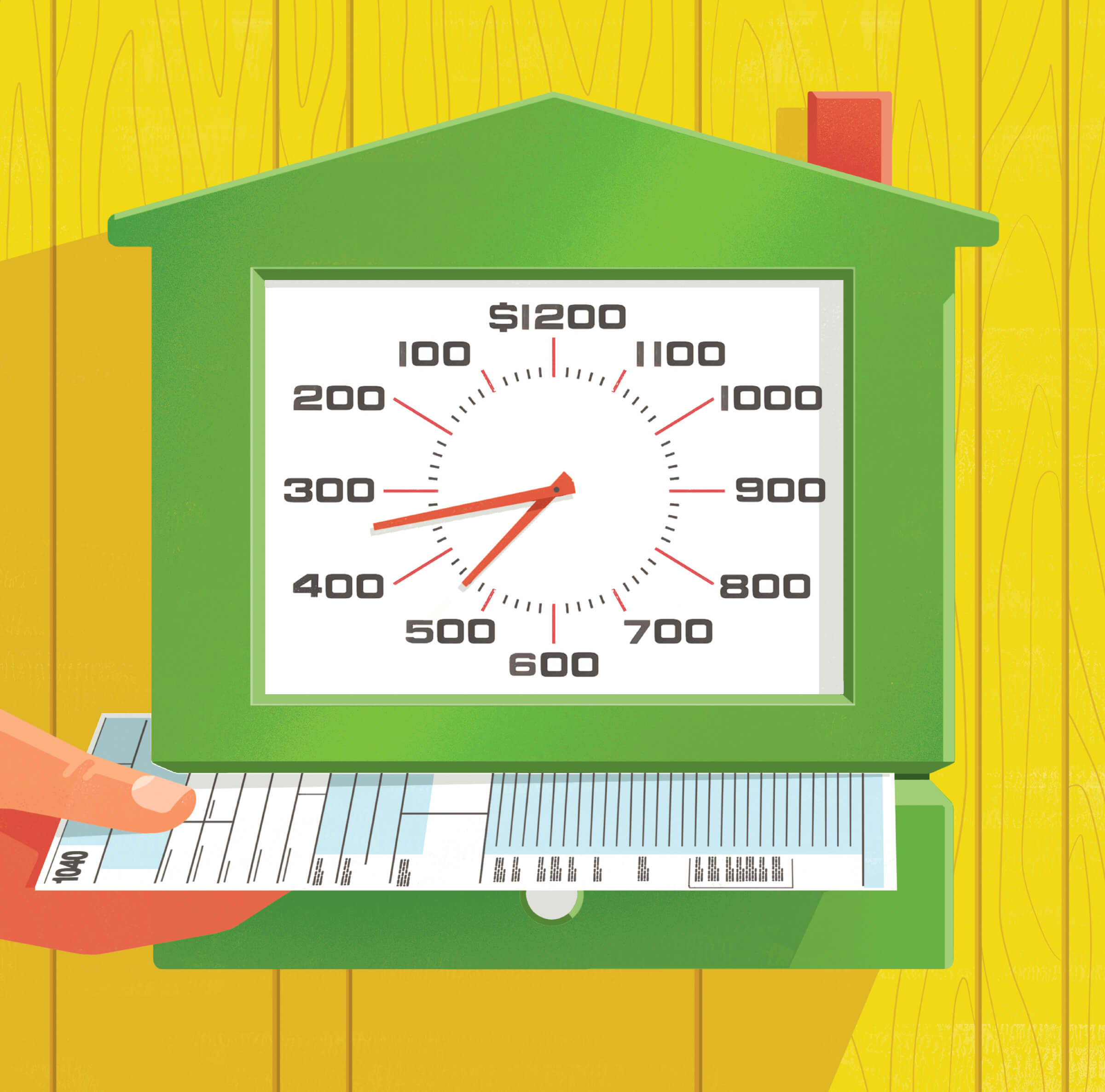Your Money
PUNCH IN, PAY TAXES
Programs allow older residents to work off property levies

Jan Partee Simpson has lived in Dorchester County, South Carolina, for most of her 64 years and in her little house for the past 25. She’s determined to stay there—living independently, hosting her four grandchildren—as long as she can afford it.
That’s why she spent about 50 hours this year processing and answering resident questions at the Dorchester County human resources office in St. George, northwest of Charleston. The work earned her about $400. “It helps out tremendously,” Simpson says.
She was one of 36 county residents 60 and older who in 2022–23 offset their property taxes by performing light-duty work. The county gave back in total more than $9,400 in property taxes.
Similar programs are emerging across the country, enabling older residents to offset part of their property taxes by undertaking work for the districts that levy them. Some states formally allow local taxing districts to offer work-off programs; others aren’t even aware their counties and school districts are doing so. Counties, towns and school districts are learning from each other how to design and implement the programs.
The AARP Bulletin found the programs scattered nationwide. Among the states where local taxing districts—counties, cities or other government entities—have established programs: Colorado, Maine, Massachusetts, Pennsylvania, South Carolina and Washington.
Often, homeowners age 60 and up can volunteer for specified tasks and have the value of that work applied to offset their property taxes. The work-off benefits are usually in addition to homestead exemptions and other adjustments that reduce property taxes for older homeowners. And there are generally caps on how much a taxpayer can receive in offset property taxes.
Take Massachusetts, as an example: Numerous towns and cities across the state—including Boston—have active programs. For taxpayers, the value can go beyond the purely financial. In the northeast Massachusetts town of Amesbury, Robert Suggs one year reduced his town property tax bill by helping run the public access boat ramp. He now greets and guides visitors at its senior center. Working 100 hours in a year earned him $1,500 off his taxes . “It gets me out of the house,” says the 71-year-old stroke survivor and veteran. “It keeps me social.”
A RANGE OF WORK
Dorchester County officials in South Carolina modeled their program on one in Colorado. JoAnn Groff, Colorado’s property tax administrator, says only a few municipalities offer the program. “It’s totally voluntary for citizens and for the tax district,” she says.
Maine launched its program in 2007, and the maximum that older homeowners can work off—which is tied to the minimum wage—has steadily gone up. In 2022, the maximum benefit was $1,380, and 220 Mainers from two participating communities saved $105,427, says Sharon Huntley, director of communications for the state’s Department of Administrative and Financial Services.
The programs share some traits. The tasks completed by volunteers must be approved by participating districts and can vary widely—from performing data entry to landscaping—based on participants’ skills and interests. In addition to limits on how much a person can earn, entities may limit the amount available among all participants. (If volunteers have any questions about the income tax implications from receiving the property tax benefit, they can consult with a tax professional.)
In Texas, San Antonio officials in September approved a pilot of the SAVES program, which will enable up to 300 older homeowners to each offset up to $400 on their property tax bills. AARP in San Antonio offered input in the early stages of the program’s design, seeing it as a way to let people age in place while also addressing housing affordability and social isolation.
“Many people are already volunteering at senior centers and community centers, and they could get an incentive for that,” says Teri Castillo, a member of the San Antonio City Council.
The possibility of earning a few hundred dollars to mitigate rising taxes goes to the heart of many families’ hopes of passing their houses to the next generation, she adds. And because many San Antonio households include multiple generations of the same family, the program Castillo is pushing includes an option for a physically frail older homeowner to delegate volunteer work to another family member.
The Avon Grove School District in southeastern Pennsylvania rekindled a dormant work-off program in 2016. But more than money was at stake: Superintendent of Schools M. Christopher Marchese says the program lets older residents “find out what’s happening in the schools” even if their own kids have long since graduated.
Participants help in school front offices, assist teachers and serve as the grown-up in cafeterias, among other tasks. Avon Grove lets both partners in a couple participate. About 100 to 130 participants take part annually, with a budget of approximately $100,000 allotted for the plan.
“It has rallied the senior citizen community because they see what we do,” Marchese says, “and what their tax dollars are doing.”
Joanne Cleaver, a North Carolina-based journalist, covers business, personal finance and other issues.
Working Off Your Taxes
LOOKING TO JOIN IN? Scan your latest property tax bill to see which categories claim the largest slices of revenue. Then, go to the appropriate website—often the county, school district, town or city—and search for programs designed to ease the property tax burden of older adults. If all else fails, contact the entity’s administrative office and ask whether it offers a work-off program.
For details on various programs, go to aarp.org/propertytaxvolunteer.
You can find other resources at AARP Foundation Property Tax-Aide, at ptaconsumers.aarpfoundation.org.